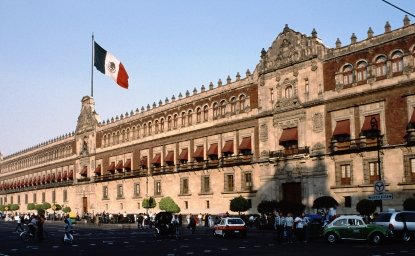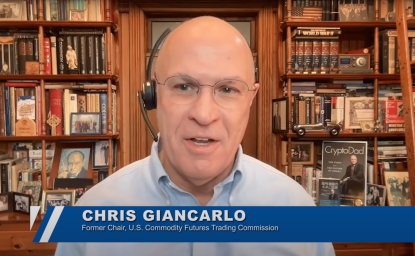The contrast between the economic reforms of the last decades and those of an electoral-political nature is striking. The first have followed an impeccable logic and are characterized by their clarity of purpose. The second ones have all been reactive, tiny and of changing compass. One can agree or disagree with one or the other, but it is indisputable that they are two different “animals.”
The need to reform arises when the status quo is insufficient to meet the needs of the population. In this sense, the notion of reforming implies a change in the surrounding reality and, therefore, the affectation of interests that benefit from the state of affairs.
In Mexico, the reforms began to be discussed in the sixties because the factors that had sustained the political-economic order began to erode. Until then, the economy operated within the context of import substitution, which required the importation of various inputs for it to function. Since the country’s exports included virtually not0hing in industrial matters, the decline in grain exports from the 1960s raised a signal of alarm. The same was true of the 1968 student movement for the political system. What had worked for several decades was no longer sustainable.
Mexico required reforms to deal with those two fledgling crises, but what actually 0happened was the beginning of a dispute over the future that was resolved, at first, in favor of a growth in public spending and inflation (1970-1982) as a means to try to satisfy the entire population. The idea was that higher spending would translate into higher growth and lower political tensions. The result was twenty years of economic crisis and an explosive political polarization.
After the 1982 debacle (an external debt crisis that took two decades to resolve), the economic reforms began, at first with timidity, then with greater speed, but always with a clear sense of direction as well as a great limitation: They liberalized imports, opened the investment regime and privatized companies that in virtually no country in the world are owned by the government. The great limitation was also obvious: although the objective was consistent (generating high rates of economic growth), nothing would be done to alter the monopoly of power, which, in practice, protected various groups, activities and sectors for the sake of maintaining political peace and the privileges that accompany it. That is to say, although consistent, economic reforms were always confined -and, therefore, impeded from wholly achieving their purpose- for political reasons.
The political reforms were another song: the monopoly of power was untouchable and was modified only to avoid crises (usually when these were about to explode). While some of these reforms were intelligent and proactive (such as the one of 1978 that sought to incorporate the left in the space of full political legitimacy- or the one in 1996, which created an independent electoral authority), the common denominator was that these were always reactive to the problem of the moment instead of attempting to develop, as had been the case in the economy, a new political order. The reason is simple: as Fidel Velázquez, the long -lasting union leader, said for many years, “by arms we arrived and only by arms will they take us away.”
The contrast between the two processes explains our current circumstance. In the first place, the dispute over the future persists and this has gained enormous importance in the current presidential race; Secondly, as was illustrated by the enormous difficulty faced by independent candidates to achieve their registration, the political system was not liberalized but, rather, the old system was expanded to include two new parties (the PAN and the PRD); finally, in third place, even though the population today votes and its votes are counted (something not minor in Mexico’s history), the population’s capacity to influence the decisions that affect them is almost non-existent because the political system is absolutely refractory to the citizenship.
What Mexico requires is a new political regime. Whoever wins in this electoral season, the citizen will continue to be the loser: although candidates promise to solve this or that, our nodal problem is that we continue to expect a person to solve problems that require the participation of the entire population. The whole direction of the economy and of society is at play in this election, something that should never be possible in a serious country; nobody should have that much power to make such transcendent decisions without proper counterweights.
To prevent this from happening again in the future, Mexico needs a new political system that contains effective checks and balances, eliminates the arbitrary faculties which, de facto, characterize the country’s politicians and bureaucrats, and makes possible a functional and professional government, all within an environment of true accountability.
Will it be too much to ask? Without a doubt, but without that, it’s not even possible to go out dancing in Chalma, as the saying goes. The question is who contributes better to this possibility.
The views expressed here are solely those of the author.
Author

Mexico Institute Advisory Board Member; Chairman, México Evalúa; Former President, Consejo Mexicano de Asuntos Internacionales (COMEXI); Chairman, Center for Research for Development (CIDAC), Mexico

Mexico Institute
The Mexico Institute seeks to improve understanding, communication, and cooperation between Mexico and the United States by promoting original research, encouraging public discussion, and proposing policy options for enhancing the bilateral relationship. A binational Advisory Board, chaired by Luis Téllez and Earl Anthony Wayne, oversees the work of the Mexico Institute. Read more

Explore More
Browse Insights & Analysis
The Mexico Institute's 2018 Elections Guide



